
Outstanding in Their Field
Three Boothies are finding abundance in farming while reducing the environmental impact of the agricultural sector.
Outstanding in Their Field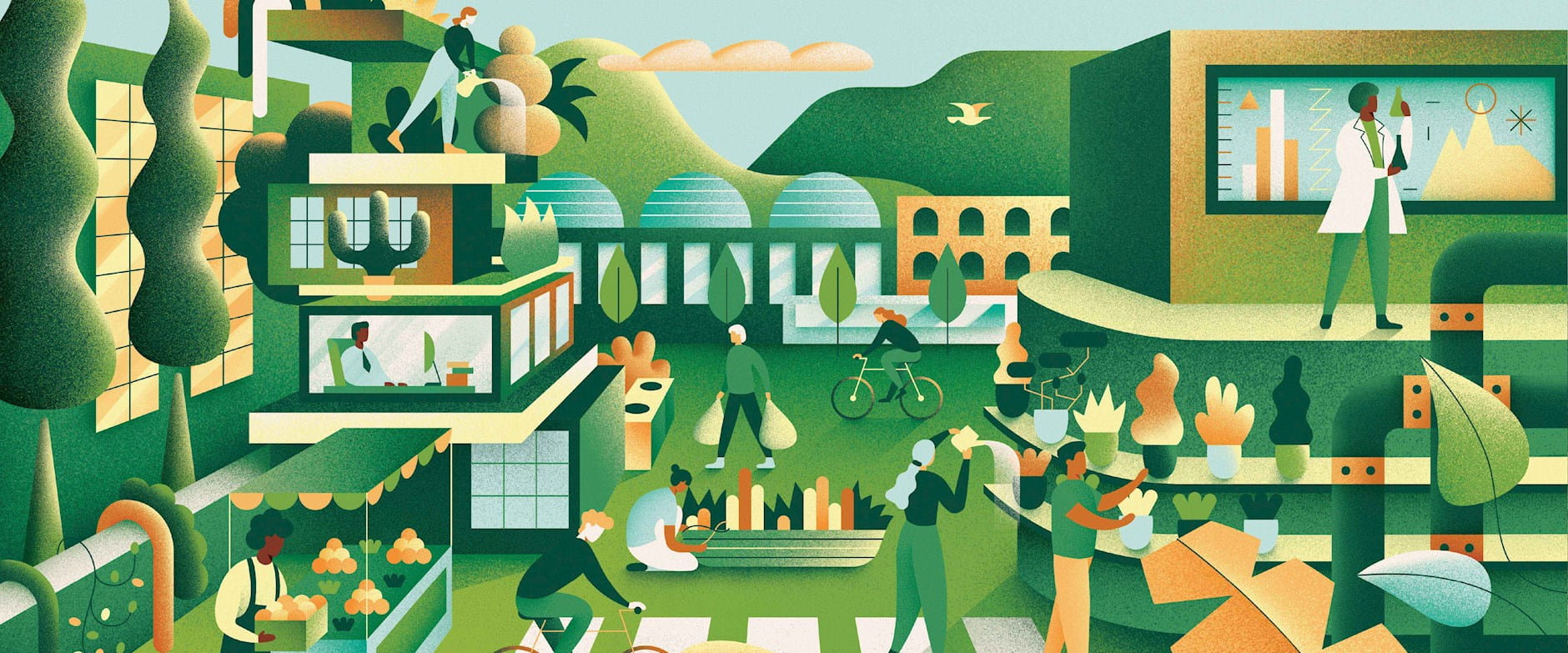
Illustrations by MUTI
Climate change often feels like an issue that’s too big to tackle.
That’s why a growing number of students and alumni are taking on sustainability issues by addressing challenges that feel close to home. Inspired by their own industries, neighborhoods, and communities, they’re fighting to make change from the ground up.
That means taking on everything from access to clean water and efficient use of climate-change investment to carbon emissions, food equity, and regenerative agriculture. Today, many alumni are using their skills to enable much-needed change through innovative companies that keep sustainability front and center.
Meet five Booth founders leading enterprises to build a more sustainable future.

In 2018, Seyi Fabode, ’10, knew he and his family had a glaring problem. After a flood in their city of Austin, Texas, overwhelmed the filtration system with silt and debris, they received Austin’s first-ever citywide boil-water advisory. His son developed a rash in reaction to the water—a common symptom during a health violation, during which local water companies typically warn residents to boil their drinking water or flush existing water.
“I knew that a million Austinites had similar constraints on being able to drink the water,” he recalls.
In the past, when local communities across the United States received similar advisories, they would often need to follow up with the water utility company to ask it to test the water and to right the issue. Then the water authorities would send someone to investigate the situation. It could take days—if not weeks—to resolve.
Some common reasons for boil-water advisories include a failure in the disinfection process or a natural disaster overwhelming the system. Water pumps running poorly can result in stagnation and worse quality water. “Old infrastructure is a big problem that leads to all sorts of contamination,” Fabode says.
With a background in operations engineering for power systems—his first startup, Power2Switch, an online marketplace to help people choose electricity suppliers, was acquired in 2013—the serial entrepreneur decided it was something he needed to address.
That revelation led to Varuna, which makes it easier to spot these violations before they impact thousands of households. Municipal water systems use Varuna’s hardware and tracking software to create real-time alerts and offer data on poor water quality. The company provides analytics along with recommendations on how to address issues quickly. It can also predict water system problems, which often happen during rain or flooding, he adds.
“The people at these water systems are some of the hardest working people I’ve ever met, but they lack the tools and technology to do their work well considering the complexity of the system and climate change,” he says. With better information and resources, the company and utilities can come together to reduce water quality violations and make it easier for residents to feel confident about their water.
Not only is this system more resilient, but it’s allowing utilities to become more sustainable. Wastewater treatment has a large carbon footprint—as does water transportation. It’s important to understand how to do this more efficiently, he says. “The old approach of flushing out existing water was not only ineffective, but also unsustainable—wasting billions of gallons of water,” he says. It meant fire hydrants running for hours, and residents turning to plastic bottles for their water.
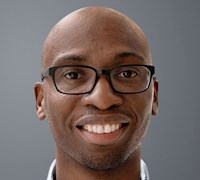
“The people at these water systems are some of the hardest working people I’ve ever met, but they lack the tools and technology to do their work well considering the complexity of the system and climate change.”
Tapping into Booth’s network and the knowledge he gained from challenging classes were major factors in the company’s growth, says Fabode. Fellow graduates Rohini Pandhi, ’10, and Mike Duffy, ’12, were Varuna’s earliest investors. A Booth student who interned at Varuna plans to accept a full-time offer.
Fabode says growing Varuna is especially meaningful as an American and an immigrant from Nigeria. He sees low-income communities with many Black residents face starkly higher rates of poor water quality than affluent areas—for example, the notorious and continuing lead crisis in Flint, Michigan, which served as inspiration for Fabode’s current work. “There’s a higher incidence of water system violations in communities of color who live on those water systems,” says Fabode.
Today, Varuna works with water systems serving close to two million people, still a small portion of the roughly 50,000 water systems across the United States. As he scales, Fabode sees an opportunity to meet his goal: bringing clean water to one billion people. “We are building more resilient water systems that are better able to handle the risks and shocks,” he says.

After earning her MBA, Jennifer Holmgren, ’06, knew she wanted to combine her chemistry background with her leadership know-how, but wasn’t yet sure of the specifics. “I didn’t know what I wanted to do with it,” she says. “But I think that the Booth education is so well-rounded and so analytical that it positioned me to think about new opportunities.”
Such an opportunity came four years later.
In 2010, Holmgren left her sustainability role at Honeywell UOP to become the CEO of LanzaTech, a company with the technology to recycle waste carbon emissions. At the time, the 40-person team had just completed its proof of concept, demonstrating how to turn steel mill emissions into ethanol through a fermentation process using bacteria. Today, under Holmgren’s leadership, carbon—captured from industry, solid waste, and agricultural wastes and residues—is converted into fuels, including sustainable aviation fuel, and the ethanol is used in fragrances and household cleaning products and is converted into packaging, apparel, and detergents.
The carbon capture and transformation startup, founded in New Zealand in 2005, moved its headquarters and research and development facility to Skokie, Illinois, in 2014. The company settled on a location just outside of Chicago because of the lab facilities, well-connected airports, and easy access to public transportation for the employees who commute from the city without a car, she says.
Holmgren now runs a team of roughly 315 across nine countries, including China, India, the United States, and the United Kingdom. Others from Booth have joined the team, including Geoff Trukenbrod, ’01, LanzaTech’s CFO. The company is scaling quickly and has raised more than $500 million in capital—recently, it was valued at $2.2 billion and plans to go public by merging with a special purchase acquisition company (SPAC) in a deal that is expected to close later this year.
Companies including Coty, Lululemon, Unilever, and Zara already use LanzaTech’s recycled waste carbon to create sustainable product lines, including fragrances and clothing. Most recently, the company partnered with Bridgestone to convert used tires into synthetic rubber, essentially creating a circular pathway for tire production.
Holmgren is focused on growing LanzaTech’s capabilities, with two commercial bioreactor plants running and another seven in the pipeline. Already, the plants have produced more than 30 million gallons of ethanol, which is the equivalent of offsetting the release of 150,000 metric tons of CO2 into the atmosphere.
The company aims to provide an alternative to fossil fuels. “It helps us demonstrate that there is a world beyond petroleum,” she says. “We are on a mission to show that everything we use in our daily lives can come from recycled carbon.”
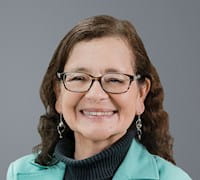
“We are on a mission to show that everything we use in our daily lives can come from recycled carbon.”
LanzaTech’s ethanol, which the company calls Lanzanol, can be used in a variety of applications, proving that consumer-grade materials can be made entirely from waste. Unlike traditional ethanol production, which domestically is derived from corn and takes away valuable farmland, LanzaTech’s fermentation process is completed outside of the food supply, which makes the alternative fuel more sustainable.
In 2020, the company also spun off LanzaJet to produce sustainable aviation fuel. It’s already working with airlines including All Nippon Airways (ANA), British Airways, and Virgin Atlantic. Holmgren is currently chair of the board of LanzaJet. By 2023, the company hopes to produce 10 million gallons of sustainable aviation fuel produced from ethanol.
On its website, LanzaTech promises that its technology “transforms pollution and ensures that humans continue to prosper far into the post-pollution future.” Ultimately, Holmgren wants to enable a circular carbon economy, allowing carbon to be reused rather than wasted.
Looking back, Holmgren says her Booth background—along with her analytical expertise—was critical to her success. “As a chemist with a PhD, it’s easy to get pigeonholed outside of the business world,” she says. “An MBA from a school like Booth validates your ability to lead a business. These credentials are hugely important.”

Before entering her first year at Booth, Isabel Rodríguez García, ’22, was eager to swap her previous career in corporate law for life as an entrepreneur. A Mexico City native, she had already founded an educational recycling program there to help households sort and recycle their trash. And in the midst of the pandemic, as global supply chains became unpredictable, she was inspired to create a venture that once again made an impact close to home.
In 2021, Rodríguez García cofounded Axo with classmate Clara Purk, ’22, who shares a passion for reducing the environmental impact of traditional agriculture practices. Their Chicago-based company connects climate-conscious farmers who are using regenerative agriculture practices with food companies nearby through an online B2B marketplace.
Sourcing managers from companies can reach out directly to farmers, assuring the integrity of particular ingredients. Typically, the partnerships are local to each region of the country—using regenerative farms in the same area that the food businesses are based.
Axo’s symbol and namesake is the axolotl, a Central Mexican salamander that has long fascinated scientists for its mastery of regeneration. It is an expert at adaptation and survival. Switching to regenerative practices is better for the land, enabling farms to become more resilient to the drought and flooding that comes with climate change.
“Around the world, illnesses can rise and spread due to the food we eat and the way it’s grown,” she says. “Regenerative farming provides the most nutrient density, uses less chemicals, and allows the soil to sequester carbon.” It’s healthier both for us and for the earth.
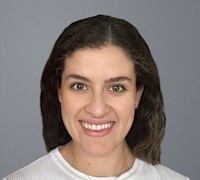
“Regenerative farming provides the most nutrient density, uses less chemicals, and allows the soil to sequester carbon.”
Rodríguez García was named a 2021 University of Chicago Obama Foundation Scholar for her work with Axo. Valerie Jarrett, CEO of the Obama Foundation, said in the 2021 cohort announcement that the scholars “displayed profound courage, dedication, and the spirit needed to create lasting change in the world.” As part of the program, Rodríguez García was able to participate in Civic Treks around the South Side, engage with community leaders, and meet president Barack Obama and first lady Michelle Obama.
Today, Axo works with eight farmers across the United States and Canada, while also connecting them with training to further enable more environmentally sound practices. Rodríguez García graduated from Booth in the spring and is continuing with Axo as its CEO.
Axo earns money through charging commission fees for each food partnership and plans to expand subscription-based offerings, such as farmer verification and marketing materials for food companies, on its platform. The Axo team hopes creating beneficial partnerships will allow other farmers to see the business case for making the transition to regenerative practices. “It’s all about having a better food system,” Rodríguez García says.

For Dominic Hofstetter, ’10, increasing the effectiveness of impact investing is all about asking different questions and rethinking traditional assumptions. Hofstetter, who serves as the space-building lead of the TransCap Initiative, is part of a group dedicated to examining how systems thinking and complex systems science can augment sustainable finance strategies in order to build a low-carbon, climate-resilient, just, and inclusive society.
The TransCap Initiative was born out of the EIT Climate-KIC, the European Union’s main hub for climate innovation. The initiative is in the early stages of developing and testing a new approach to investment logic that’s at the intersection of systems thinking and finance practice. It also works as an innovation space that brings stakeholders together, initiates and supports experiments and innovation projects, and disperses its findings.
“We’re trying to redefine the paradigms of investing in the context of sustainability transitions,” says Hofstetter, who was previously the director of capital and investments at EIT Climate-KIC. “The science tells us that we need to fundamentally transform the way we live, work, and play as a society. Incremental innovation isn’t going to help us safeguard human civilization as we know it.”
In one project in Switzerland, where Hofstetter is based, he and his team are reexamining how a systemic investment approach can help the country transition to a net-zero emissions mobility system. In Vietnam, he and his team collaborated with the United Nations Development Programme on examining how to deploy capital to tackle plastic pollution at a regional level—Vietnam is fourth in the amount of plastic it discharges into the ocean, a problem only expected to grow as countries such as the United States continue to send their waste abroad.
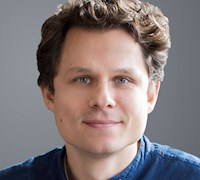
“The science tells us that we need to fundamentally transform the way we live, work, and play as a society. Incremental innovation isn’t going to help us safeguard human civilization as we know it.”
On-the-ground prototyping allows Hofstetter to generate the proof points needed to give investors the confidence in the impact promise of systemic investing. One of his learnings: change needs to happen on a smaller scale first. “You need to localize your approach to investing, because sustainability means different things in different places, and there is no one-size-fits-all approach to managing transitions,” he says.
“What we’re ultimately trying to do is change the mindsets and practices of those investors who care about their societal impact,” says Hofstetter. “The time for incrementalism is over. What we need is structural, paradigmatic change in the way our economy operates. Investors who pay attention to what happens at the system level will be at the forefront of that change.”
Hofstetter says his background was critical in allowing him to think systemically about tackling climate change. In addition to his MBA, he completed a master of science in environmental change and management from the University of Oxford. Former Booth adjunct professor Travis Bradford, who is now an adjunct professor at Columbia University and taught a course on renewable energy when Hofstetter did his MBA, is one of his mentors. He was also mentored by Harry L. Davis, the Roger L. and Rachel M. Goetz Distinguished Service Professor of Creative Management, as part of the Distinguished Fellows Program. These two leaders and their guidance encouraged him to pursue a career steeped in a societal purpose.
Today, he remains committed to Booth’s mindset of real-world testing and questioning. “We don’t claim to have found a panacea for bringing change into the world,” he says. “We operate with hypotheses, subjecting them to real-world testing and third-party examination so that we can learn our way forward.”

After stepping off her bus to run an errand in the Austin neighborhood of Chicago, Elizabeth “Liz” Abunaw, ’14, searched on her phone for a nearby bank or grocery store. To her surprise, both were nearly 2 miles away.
“I could not do a simple task in a neighborhood, which sparked a sense of disbelief,” she recalls. “I realized that this is the other Chicago that I hear about on the news—it was very jarring.”
Austin, located on the West Side, is one of the city’s most neglected neighborhoods. The working-class community spans an area of 7.16 miles but has just three places to get groceries, far fewer than more well-off neighborhoods in the city. For groceries, many of its roughly 95,000 residents leave to shop in nearby suburban Oak Park. After doing research, Abunaw found that about $90 million in grocery retail leaves the community each year.
“Essentially, you have a working-class Black and brown area subsidizing an affluent community nearby,” she says. She was struck by the idea that it was impossible for Austin residents, many of whom looked like her, to purchase fresh food and access their finances as easily as she could in the predominately white neighborhood she lived in.
A year later, Abunaw set out to try to change that.
The entrepreneur launched Forty Acres Fresh Market as a series of fresh grocery pop-ups for neighborhood shoppers in 2018. She used the monthly shopping events to offer fresh fruits and vegetables to locals while testing out the concept of having a permanent grocery store in the area. “I would bring in 70 varieties of fruits and vegetables and put up paper price signs,” she says.
Once the pandemic started, Abunaw needed to retool. Instead of frequent pop-ups, Forty Acres started to offer produce boxes filled with fruits and vegetables. Subscriptions have helped the business grow. Boxes are now delivered to roughly 200 families and businesses all over the city and are an essential revenue stream.
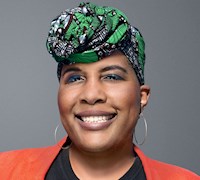
“A grocery store is where you see your neighbors. It’s an anchor business that attracts other businesses to a corridor.’
Still, there are plenty of hurdles and myths to dispel, underscoring the need for marketing efforts. “It’s hard to get the word out,” she says. “There’s a perception that it’s for low-income shoppers, and that the quality can’t be good if it’s in Austin. There’s a need for messaging to overcome all of that stuff.”
Abunaw came to Booth after a stint at General Mills. While at school, Abunaw, who was a recipient of the Amy & Richard F. Wallman MBA Scholarship, focused on social entrepreneurship, but later took a job at Microsoft doing partner sales. It didn’t take long to make the switch back into entrepreneurship.
In 2018, Abunaw and Forty Acres Fresh Market were accepted into the Alumni New Venture Challenge for alumni launching early-stage ventures. She credits the participation with unlocking roughly $1 million in additional funding. She also participated in one-on-one sessions with the Polsky Center for Entrepreneurship and Innovation’s entrepreneurs-in-residence, who helped her understand how to use a nearby grocery store as a model for moving forward.
She had informal support too. “I used the Booth ecosystem,” she says. Several former classmates joined in to review her grant applications and committed to early morning wake-ups to volunteer during the pop-ups.
Abunaw plans to break ground on the Forty Acres Fresh Market physical location later this year. Once complete, she hopes the grocery store will be known for “far more than just food.” She anticipates that the store will draw additional businesses to a predominantly Black area that has long experienced disinvestment.
“We’re building neighborhood infrastructure and building social infrastructure,” she says. “A grocery store is where you see your neighbors. It’s an anchor business that attracts other businesses to a corridor.”
Abunaw is the codeveloper and co-owner of the $8 million real-estate project. The funding for the brick-and-mortar grocery store includes a $2.5 million grant from the City of Chicago, funded by the Chicago Recovery Plan.
“The store has always been the ultimate goal,” she says. “In order for a community to truly no longer have food-access challenges, healthy food has to be a permanent part of that community’s infrastructure."

Three Boothies are finding abundance in farming while reducing the environmental impact of the agricultural sector.
Outstanding in Their Field
Martin Herz, ’98, says using business skills to provide community service has powerful benefits.
Building Pathways to Opportunity
Jim Fish, ’98, has worked hard to create a concretely people-first workplace as president and CEO of WM.
A Great Place to Work